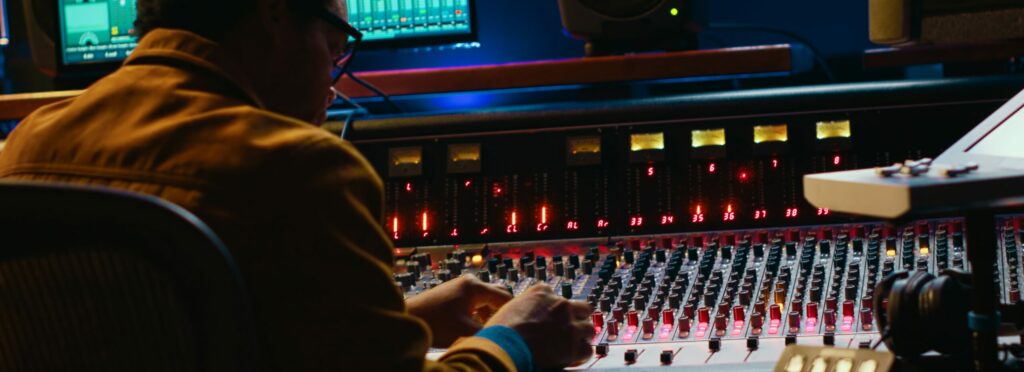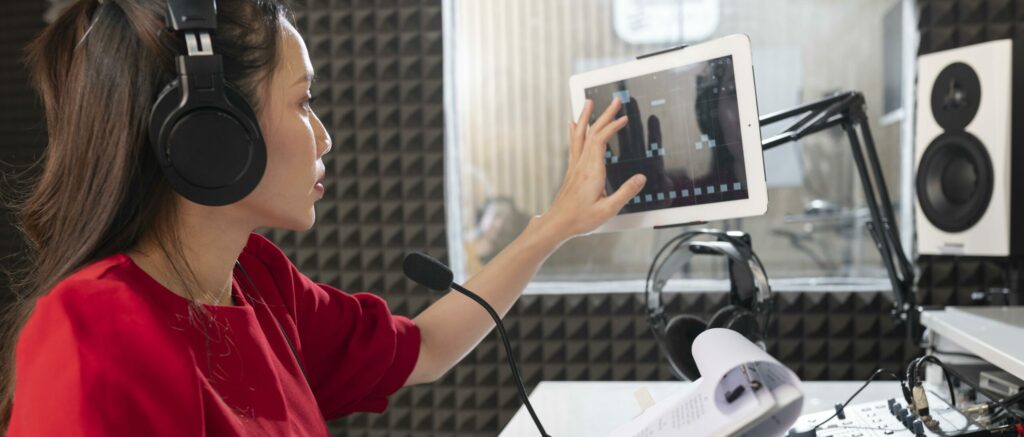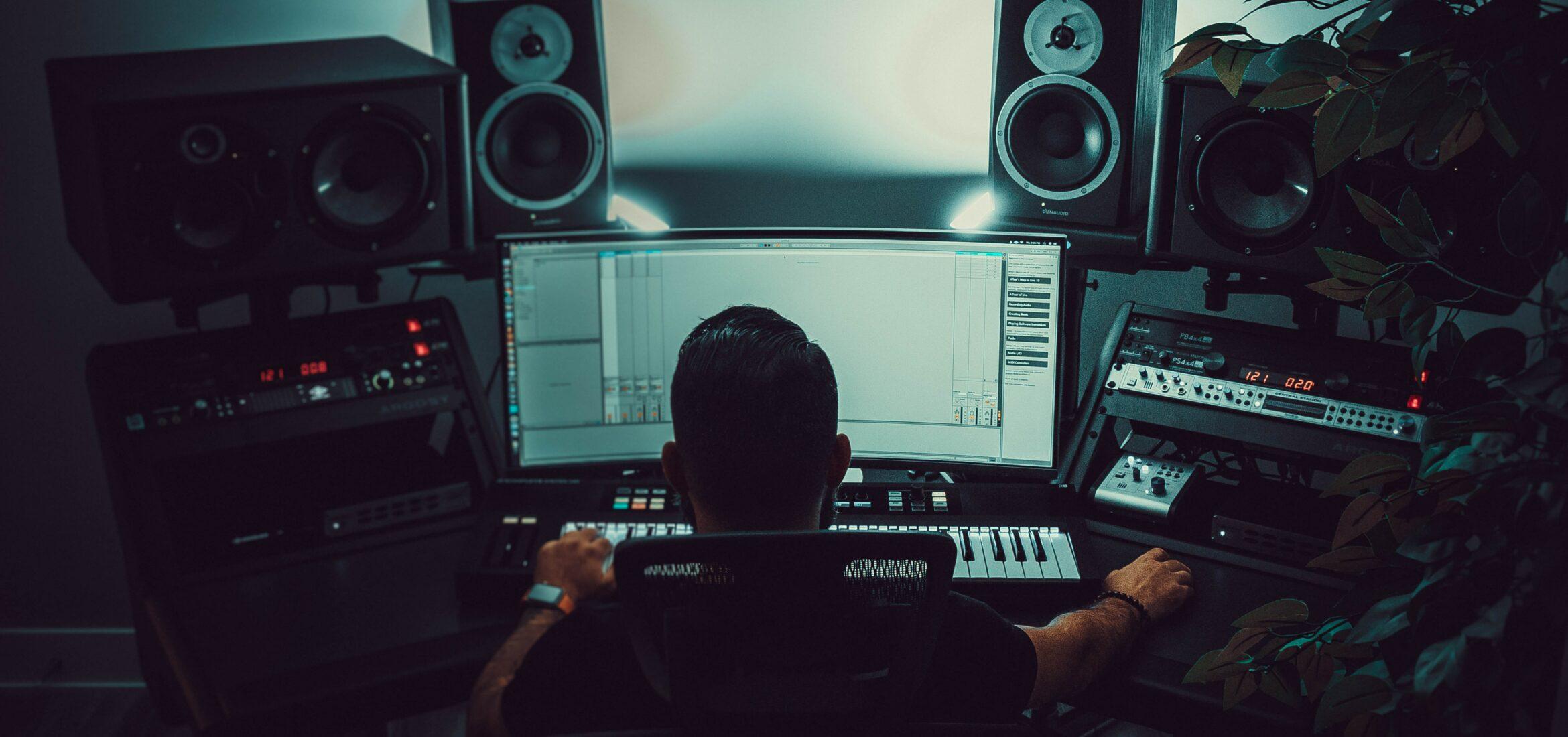The music industry is undergoing a significant transformation, driven by advancements in technology and the growing integration of artificial intelligence (AI) into various aspects of production. Among these advancements, audio mastering stands out as a critical area where AI and automated solutions are beginning to revolutionize traditional practices. In this article, we will explore the future of audio mastering, focusing on the role of AI and automated systems, and how they are reshaping the landscape for musicians and producers alike. As we delve into this topic, we will examine the potential benefits and drawbacks of these technologies and provide insights into how they may influence the mastering process in the years to come.
Table of Contents
- Understanding Audio Mastering
- The Role of AI in Mastering
- Benefits of Automated Mastering Solutions
- Challenges and Limitations of AI Mastering
- The Future of Mastering: Trends and Predictions
- Conclusion
Understanding Audio Mastering
Audio mastering is the final step in the music production process, where the completed mix is polished and prepared for distribution. This essential stage ensures that the music sounds its best across various playback systems, from streaming services to vinyl records. Mastering involves a range of technical processes, including equalization, compression, and audio limiting, all aimed at enhancing the overall sound quality and ensuring consistency across an album or project.
Traditional Mastering Techniques
Traditional mastering techniques rely heavily on the expertise of skilled mastering engineers. These professionals use a combination of high-end equipment and their trained ears to make nuanced decisions about the final sound. Techniques often include:

- Equalization (EQ), a fundamental process in mastering, adjusts the balance of different frequency ranges within a track. By selectively boosting or cutting certain frequencies, mastering engineers can create a more harmonious and pleasing sound that translates well across various playback systems. Several advanced EQ mastering techniques, like Mid/Side processing and Dynamic Equalization, are used to balance a track.
- Multiband compression is employed to manage the dynamic range of audio, ensuring that the loudest and softest parts of a track are balanced effectively. This not only enhances the overall loudness but also contributes to a more polished and professional sound.
- Audio Limiting serves as a protective measure against distortion, allowing for increased loudness without compromising audio quality. By capping the peak levels of a track, limiting helps maintain clarity and prevents unwanted clipping.
- Stereo enhancement techniques are used to create a more immersive listening experience by widening the soundstage. This involves manipulating the stereo image to give the listener a sense of space and dimension, making the music feel fuller and more engaging.
The human touch involved in traditional mastering ensures that the emotional and artistic elements of the music are preserved, making it a vital part of the production process.
The Role of AI in Mastering
AI is making significant inroads into the audio mastering process, offering innovative solutions that can enhance traditional techniques. By utilizing machine learning algorithms and advanced audio processing tools, AI can analyze audio tracks and make adjustments that optimize sound quality. This section will delve into the various ways AI is currently being integrated into the mastering workflow, as well as the tools available for producers and engineers.
AI Algorithms in Audio Processing
AI algorithms have been developed to perform tasks that were once solely the domain of human engineers. These algorithms can analyze audio tracks for specific frequency imbalances, dynamic range issues, and overall loudness. Some key technologies include:
- Machine learning models that learn from vast databases of mastered tracks can analyze patterns and preferences across numerous genres, enabling them to apply successful techniques to new projects. These models continuously improve as they process more data, refining their understanding of what constitutes a high-quality master.
- Neural networks that can mimic human mastering decisions leverage complex algorithms to understand the subtleties of audio engineering. By replicating the decision-making process of experienced engineers, they can deliver results that resonate with listeners while maintaining artistic intent.
- Dynamic EQ and audio compression processors, although not powered by AI, adapt to the audio characteristics due to their intrinsic nature.
These advancements enable faster and often more precise mastering processes, allowing for high-quality results in a fraction of the time.
Case Studies of AI Mastering Services
Several AI mastering services have emerged in the market, showcasing the effectiveness of automated solutions. Notable examples include:

- MasteringBOX: An AI Audio Mastering service that provides instant mastering at affordable pricing.
- CloudBounce: An online mastering platform that allows users to upload their tracks for automated mastering in various styles.
- LANDR: An AI-driven platform that offers instant mastering with some customizable options.
These services highlight the growing acceptance of AI in the mastering process and provide musicians with cost-effective and efficient options.
Benefits of Automated Mastering Solutions
The integration of AI and automated solutions in mastering offers several advantages that can significantly benefit musicians and producers. These technologies promise to reshape the industry by delivering cost savings and enhancing time efficiency.
Cost Efficiency
One of the primary benefits of automated mastering solutions is cost efficiency. Traditional mastering can be expensive, often requiring significant investment in professional services. With AI-driven platforms, musicians can access high-quality mastering at a fraction of the cost. This democratization of mastering services enables independent artists and smaller labels to produce professional-quality music without breaking the bank.
Time Savings
AI mastering can drastically reduce the time required to master tracks compared to traditional methods. Where a human engineer might take hours or even days to perfect a track, AI algorithms can analyze and process audio in real-time. This efficiency allows artists to release music more quickly and respond to market demands faster, ultimately enhancing their competitive edge in the industry.
More Iterations
AI mastering solutions offer the significant advantage of rapidly producing multiple iterations of a master. Musicians can experiment with different mastering styles, mix levels, and other adjustments without the lengthy turnaround time typically associated with traditional mastering. This flexibility not only encourages creativity but also empowers artists to fine-tune their sound to align perfectly with their artistic vision. As artists gain access to these iterative capabilities, the quality and diversity of music produced may expand, leading to more innovative and unique auditory experiences for listeners.
Challenges and Limitations of AI Mastering
Despite the numerous advantages, there are also challenges and limitations associated with relying on AI for audio mastering. This section will address these concerns, particularly regarding quality and the emotional nuance of music.

Quality Concerns
While AI mastering can produce impressive results, there are potential quality issues that may arise compared to human mastering. Some of these concerns include:
- Inability to fully understand artistic intent
- Potential for over-processing or losing dynamic range
- Limitations in handling complex audio elements
These factors can lead to a final product that lacks the depth and richness often achieved through traditional mastering techniques.
Loss of Artistic Touch
A significant concern among musicians and producers is the potential loss of the artistic touch that human engineers provide. Mastering is not just a technical process; it also involves subjective decisions that reflect the artist’s vision. Automated solutions may struggle to capture the emotional nuances and subtle details that a human engineer would instinctively incorporate, potentially resulting in a less impactful final product. It certainly lacks some advanced mixing techniques that better engineers may achieve.
The Future of Mastering: Trends and Predictions
As AI technology continues to evolve, it is essential to consider the future trends in audio mastering and how the industry may adapt. This section will explore emerging technologies and the potential shifts in practices as AI becomes more prevalent.
Emerging Technologies
The future of audio mastering will likely see the development of even more sophisticated AI tools and algorithms. Anticipated advancements include:
- Enhanced machine learning models that can improve the mastering process and deliver better results
- Integration with large AI language models that can provide users with the ability to request specific changes in the mastering settings using text prompts.
- Greater customization options for artists to tailor the mastering process to their specific needs using reference tracks.
These innovations could further transform the mastering landscape, making high-quality audio more accessible to a broader range of creators.

Industry Adaptation
As AI technologies become ingrained in the mastering process, music producers and sound engineers will need to adapt to these changes. This adaptation may involve:
- Embracing hybrid workflows that combine AI tools with traditional techniques
- Upskilling in new technologies to remain competitive
- Reevaluating the role of human engineers in the mastering process
The industry will likely see a shift in job roles and responsibilities as automation becomes more prevalent, but the demand for skilled professionals who can provide the human touch will remain.
Conclusion
In conclusion, the future of audio mastering is set for significant change. AI and automated solutions are gaining traction. These technologies offer many benefits, such as cost and time efficiency. However, they also present challenges that are being addressed. Striking a balance between technological advancement and artistic integrity will be crucial. The music industry must navigate this evolving landscape carefully. Looking ahead, it is clear that AI in mastering will significantly shape music production, distribution, and audience experience worldwide.
About the Author

Dídac
CEO & Founder of MasteringBOXDídac is a professional audio engineer, music producer and software engineer. He is the founder of MasteringBOX and the author of many of the articles on the blog.
Leave a comment
Log in to comment


